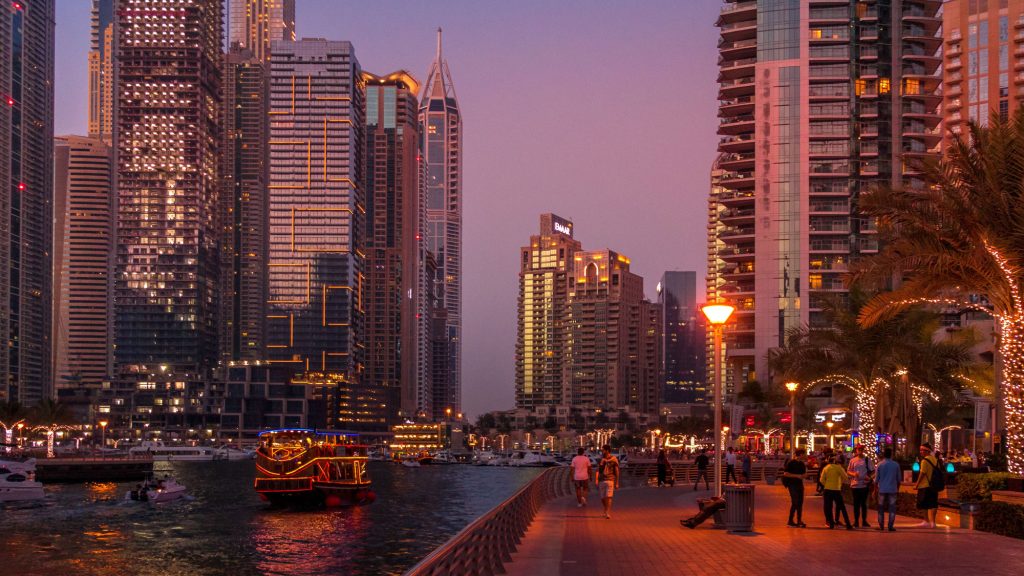How Safe Is Dubai at Night? Unveiling the Truth Behind the City’s 24/7 Glow Curious whether Dubai’s dazzling nights are as secure as they seem? Let’s peel back the layers of this 24/7 metropolis to reveal how safety and luxury coexist under the stars.
Dubai’s Nighttime Safety Infrastructure
Dubai’s reputation as one of the world’s safest cities isn’t accidental. The emirate invests heavily in cutting-edge security tech, like AI-powered surveillance cameras and facial recognition systems in crowded areas such as Dubai Marina and Downtown. Police patrols are frequent yet discreet, with officers trained in multiple languages to assist tourists. Did you know? Dubai’s “Smart Police Stations” operate 24/7, allowing crime reporting without human interaction—a global first.
The city’s lighting design also plays a role. Streets in districts like Jumeirah and Business Bay are brightly lit until dawn, discouraging petty crimes. Even residential zones like Arabian Ranches have gated communities with round-the-clock security. For added reassurance, emergency call boxes are installed every 500 meters along major promenades like The Walk at JBR.
Safe Zones for Night Owls: Where to Wander Freely
Tourist hotspots like Dubai Mall and Souk Madinat Jumeirah buzz safely well past midnight, thanks to visible security and crowds. Areas like City Walk and La Mer blend open-air dining with family-friendly activities, often hosting night markets under strict safety protocols. For a quieter vibe, Al Seef’s waterfront heritage district combines old-world charm with modern surveillance.
Avoiding sketchy areas? Locals recommend steering clear of deserted industrial zones like Al Quoz late at night. That said, incidents in these areas are rare. Dubai’s strict alcohol laws (served only in licensed venues) keep public intoxication minimal, unlike many global cities.
Cultural Nuances: Navigating Dubai’s Social Code After Dark
Respect for local culture enhances safety. While Dubai is cosmopolitan, modest attire is appreciated in public spaces after sunset—think covered shoulders and knees. During Ramadan, eating or drinking in public past sundown is prohibited, but hotels and malls offer discreet dining options.
Women traveling alone often praise Dubai’s safety. Ladies’ taxis (pink-roofed cars driven by female drivers) are available via apps like Careem. Female-only metro cabins and park sections add layers of comfort. A 2023 survey by Dubai Women’s Foundation noted that 94% of female expats feel safer here than in their home countries.
Public Transport After Dark: Reliability in the Moonlight
Dubai Metro’s Red Line runs until 1 AM on weekends, connecting key areas like Deira and Dubai Marina. Night buses cover routes to suburbs like International City, with GPS-tracked vehicles ensuring transparency. Taxis are metered and regulated by the RTA—no haggling needed.
For budget travelers, shared “abras” (water taxis) cross Dubai Creek until midnight at fares lower than a coffee. Ride-hailing apps like Uber display driver details and route tracking, adding peace of mind.

Nightlife Safety: Clubs, Bars, and Hidden Rules
Dubai’s nightlife thrives under careful regulation. Clubs in Palm Jumeirah or DIFC require ID checks and often have undercover security. Alcohol is served only in licensed venues—hotels or private clubs—and public drunkenness can lead to fines. The legal drinking age is 21, strictly enforced.
Look out for “happy hours” at venues like Barasti Beach Bar, where crowds are lively but controlled. Licensed beach clubs like Zero Gravity have lifeguards on duty even during late-night parties.
Emergency Protocols: What to Know Before You Need Help
Dubai Police’s response time averages 4.3 minutes in urban areas, among the fastest globally. Save their non-emergency number (901) and download the Dubai Police App for services like accident reporting or virtual patrol requests. Hospitals like Rashid Hospital in Oud Metha have 24/7 emergency rooms with multilingual staff.
Pro tip: Register your travel details on the MOFAIC (UAE Ministry of Foreign Affairs) website for consular support.
Myths vs. Reality: Debunking Common Fears
Myth: “Dubai’s desert outskirts are dangerous at night.” Reality: Organized desert safaris include GPS-tracked vehicles and trained guides. Myth: “Pickpocketing is rampant.” Reality: Incidents are 80% lower than in Paris or Rome, per InterPol’s 2022 data.
That said, scams targeting tourists (e.g., fake “discount” gem stores) exist. Stick to reputable shops in malls or government-certified markets like Gold Souk.
Local Insights: How Residents Stay Safe
Emiratis often share a saying: “Trust in Allah, but tie your camel.” Translation: Enjoy Dubai’s openness, but stay vigilant. Expats recommend avoiding heated public debates (illegal) and keeping passports in hotel safes.
For real-time updates, follow Dubai Police’s Twitter account—they alert followers about traffic mishaps or rare weather events.
Your Night Safety Checklist
- Carry a photo ID (passport copy suffices).
- Use ATMs inside malls or hotels, not isolated ones.
- Confirm taxi routes via app to avoid “scenic detours.”
- Stay hydrated—Dubai’s night heat can surprise newcomers.
Dubai after dark is less about risks and more about nuanced preparedness. With its blend of tech-driven security and cultural respect, the city lets you savor midnight adventures with confidence. The team at www.few.ae curated these insights to prove that Dubai’s nights aren’t just glamorous—they’re guarded by a silent, efficient shield. So, step out and let the city’s moonlit magic rewrite your definition of urban safety.
